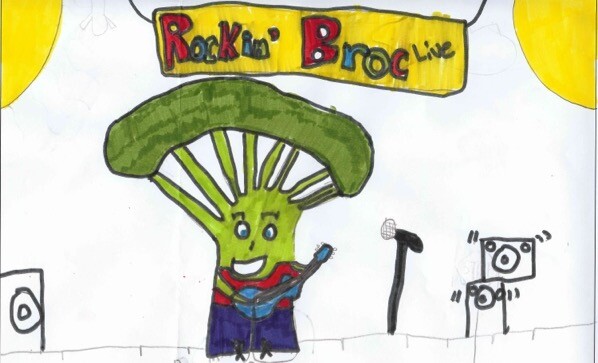
New research suggests kids may eat more veggies if they become poster children for healthy eating – quite literally, in fact.
The study, led by the University of Nebraska-Lincoln’s Christopher Gustafson, found that students who were asked to make marketing materials focused on the healthiness of vegetables significantly increased their consumption of those foods.
The study was conducted at four elementary schools in Kearney and invited students in one school to design posters about eating vegetables. The researchers found that elementary students who both designed the posters and got to see them displayed in the school lunchroom increased their consumption of vegetables at school by over three-quarters of a serving – an increase of more than 100 percent. This eating uptick continued when researchers went back two months later to follow up.
“Directly involving students in the design of the materials led to higher consumption of vegetables, more so than if the kids were only exposed to promotional materials,” said Gustafson, assistant professor of agricultural economics at Nebraska.

Gustafson said the results help confirm the notion that people who are more involved in decision-making are more committed to that decision. Students who made posters could also be serving as ambassadors to their peers, and establishing positive social norms within the school.
“Students creating those promotional materials for healthy foods can help reinforce the message that’s on the poster itself,” he said.
Students exposed to the kid-designed posters, but not the designers themselves, also ate more vegetables over time. There was no immediate change in their consumption, but at the two-month follow-up, researchers noted a significant increase.

Gustafson said schools could consider adopting similar activities that could pay dividends for students’ health.
“Doing this activity with students takes a little bit of time and some coordination, but if kids are more excited about posters they’ve drawn, it’s a pretty low-cost way to promote healthier eating,” he said.
The study is forthcoming in the journal Preventative Medicine Reports. In addition to Gustafson, the study was co-authored by Bryce Abbey and Kate Heelan of the University of Nebraska at Kearney.







